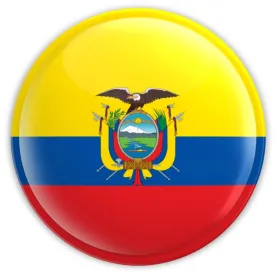On April 2, 2017, Ecuador held its second round of presidential elections, in which the governing party, Alianza País’s (AP) candidate, former Vice President Lenin Moreno, has been declared the winner. According to the National Electoral Council of Ecuador (CNE), AP obtained 51.16 percent of the vote, as compared to 48.84 percent that went to his challenger, former banker Guillermo Lasso of the Conservative Movement (CREO).
Lasso immediately contested the outcome of the elections, triggering several protests and clashes between the police and his supporters. The presidential race was widely watched in part because it could have impacted the fate of WikiLeaks founder Julian Assange, who continues to reside in Ecuador’s embassy in London; Lasso pledged that he would not allow his refuge to continue, arguing the asylum was burdening the country’s taxpayers. Lasso’s platform included support for austerity programs to achieve promised tax cuts and grow jobs. However, Lasso was plagued with accusations that he evaded taxes through dozens of offshore accounts.
Several electoral missions – including those sent by the Organization of American States and the Union of South American Nations – sought to guarantee the transparency of the vote, which will define the future of Ecuador after incumbent President Rafael Correa’s 10 years in office.
Ecuador‘s National Electoral Council President Juan Pablo Pozo called on Lasso to recognize the results as a democratic decision made by the people of Ecuador. He stated that “Not a single vote has been given or taken away from anyone.” Pozo declared on April 4 that the results of the country’s April 2 presidential vote are “irreversible” and confirmed Moreno as the next president of the Andean Nation. Lasso has until April 12 to challenge the results, but he will need to provide real evidence of unlawful activity during the elections in order to do so. Meanwhile, the US Department of State issued a statement congratulating the people of Ecuador for taking part in the elections, but noting its concerns with the electoral process and calling for any issues to be resolved in a legal and transparent manner.
The Ecuadorean economy is forecast to shrink 2.7 percent this year, according to the International Monetary Fund, an issue that will be faced by President-elect Moreno as he attempts to revitalize the country’s economy that has been severely impacted by falling oil prices.





 />i
/>i
